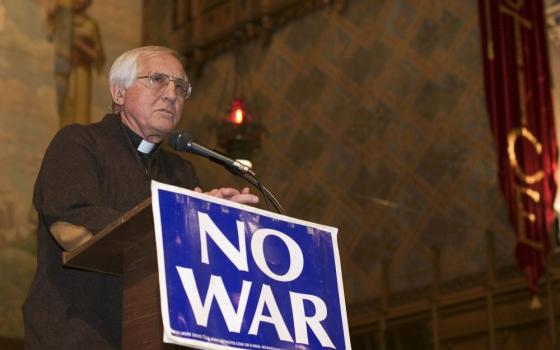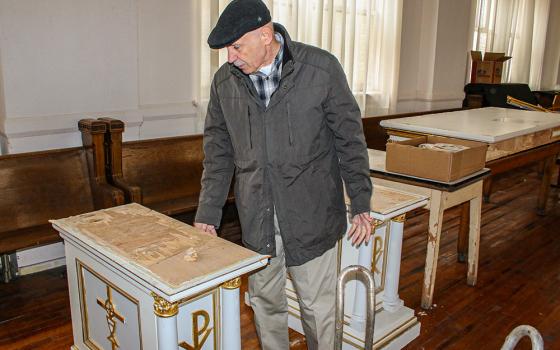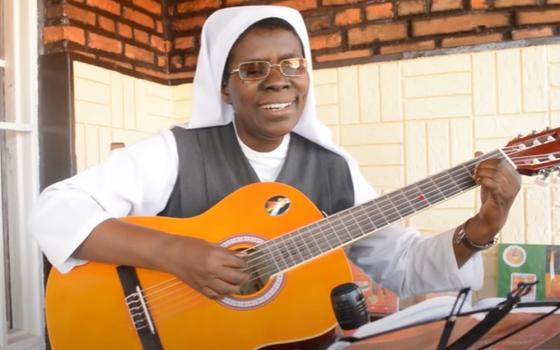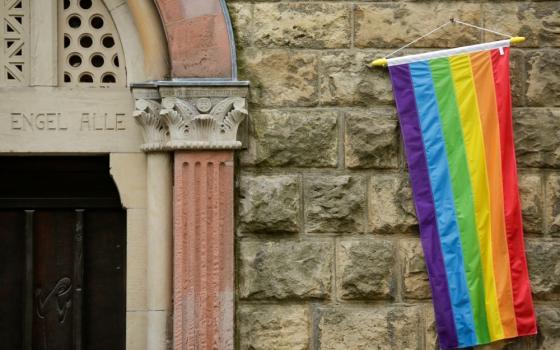
(Unsplash/The Climate Reality Project)
The recent decision by the U.S. hierarchy to shut down Catholic News Service operations in this country, shortsighted and insulting to the Catholic community, also bares tensions inherent in a setup where agencies are tightly aligned with or dependent upon the institutional church for their existence or credibility.
The move is regrettable. While bishops might claim financing as the cause for the shutdown, if they wanted the service to survive, they'd certainly find a way.
CNS, located in the bishops' headquarters in Washington, was never going to venture into deep investigative digs or lead the pack in pointing out hierarchical hypocrisy. But it earned wide respect because of its steady production of voluminous and accurate reporting on the activity of the church. There existed very clear if unspoken boundaries about how far it could go in its coverage. Those who ventured beyond sometimes paid a hefty price. But even that amount of control was not enough to mollify bishops who resisted the gentlest questions and attempts at holding them accountable.
In eliminating CNS, the bishops not only destroy a respected conduit of information essential to a healthy community, they concede any role they might have — beyond self-serving news releases — in constructing the Catholic narrative in the wider culture. They concede that territory to the loudest voices with the most money, as NCR has made clear repeatedly by extensively documenting the influence of money on the church.
The EWTN empire, Timothy Busch and the Napa Institute (a principal funder of the empire), Catholic News Agency, FAITH Catholic, and the rest are not concerned with high standards of journalism. They are, instead, intent on promoting a variety of interests ranging from Catholic libertarianism to Catholic versions of self-help and feel-good spirituality. That's all evidence how large the Catholic tent can be, but it shouldn't be confused with good journalism.
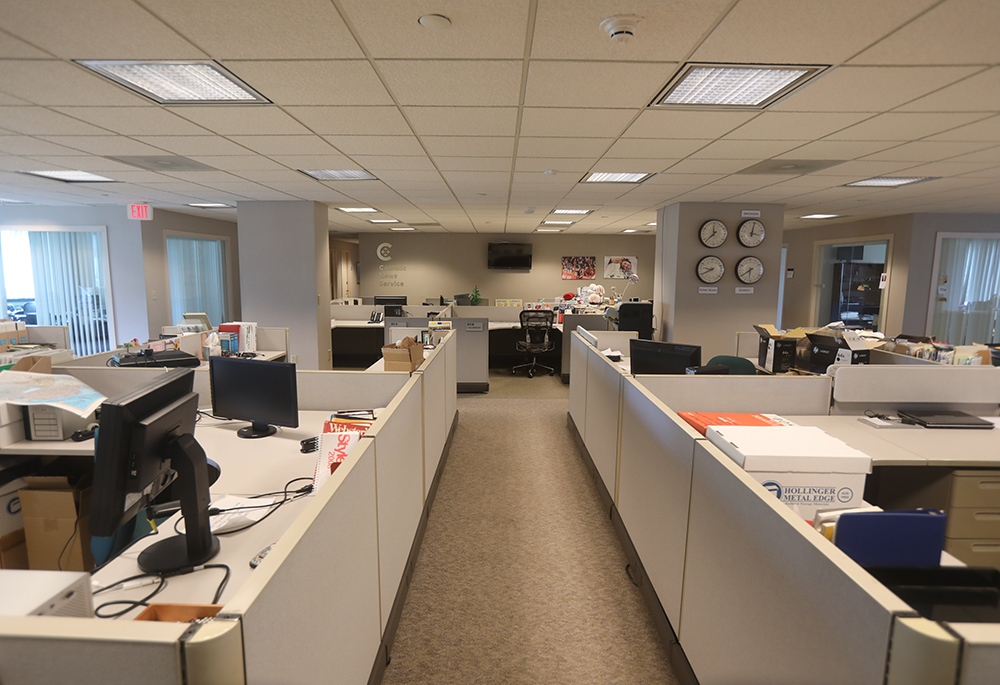
An empty Catholic News Service newsroom is pictured at the headquarters of the U.S. Conference of Catholic Bishops May 4 in Washington. The bishops' conference announced to staff May 4 a dramatic reorganization of its communications department, including the closure of the Washington and New York offices of CNS. (CNS/Bob Roller)
So what should Catholics seek in their sources of information if they're looking for good journalism? Permit me to dispense preemptively with some nonsensical notions regarding both journalism and evangelization that recently invaded the conversation.
In his comprehensive reporting on some of the possible consequences and conflicts of interest that enter the vacuum that will be left by the disappearance of CNS, Brian Fraga focuses on FAITH Catholic, a producer of slickly presented inspirational and upbeat content for diocesan publications. I have nothing against uplifting and inspirational material, but it is not the same as reported news or good journalism.
Fraga quotes an undated column in FAITH Catholic's "Content Evangelist" magazine in which Patrick O'Brien, the founding president and CEO of the organization, describes Catholic journalists as "essential [aides]" to their bishop.
"In other words, it is a higher call to be an evangelist than a journalist," O'Brien wrote. "When the ideals of journalism appear to take precedence over being a disciple who evangelizes, the diocesan journalist can lose his or her way."
I have nothing against uplifting and inspirational material, but it is not the same as reported news or good journalism.
Read O'Brien's essay in its entirety here, but be forewarned: It is a tortured, headache-producing mishmash that attempts to meld the journalistic standards of the American Press Association with what he sees as the obligations of obedience to bishops required of what he calls "diocesan content creators." Any aspiring journalist who tries to follow his directions has already lost his or her way.
O'Brien may have the best of intentions, but his hybrid design is really a monstrous creation that does violence to both journalism and legitimate evangelization. It is, in short, an attempt to squish journalism into the public relations/marketing mold. It just doesn't fit.
Evangelization, like journalism, doesn't consist of placing a smiley face on religious expression and practice. Both are far more demanding and often require telling difficult truths to and asking hard questions of people in power. Being an "aide" to the bishop on matters of communication is not journalism or evangelization; it is public relations.
The tension between PR and journalism pretty much describes the forces at play in a large swath of U.S. Catholic journalism for decades. I've watched the tension play out, talented journalist by talented journalist, diocese by diocese. Lots of really gifted reporters and editors in constant motion trying to find the next spot where a "good guy" bishop would permit them to do respectable work. But the bishops who sign the paychecks move often, or screw up big time, and they have a mandatory retirement date. Rarely is assuring journalistic integrity atop their to-do lists. In too many cases, diocesan publications have become in-house commercials for the bishop and the clerical culture.
Advertisement
I doubt many bishops would have subscribed in practice to the role of the Catholic press outlined by the eminent Jesuit theologian John Courtney Murray, who distinctly argued that serving the purpose of bishops and other clerics was precisely not the task of Catholic journalists.
The founders of NCR reproduced the speech Murray delivered to the International Press Association in 1963 as a four-page flyer. They distributed it in 1963 as an explanation/advertisement for this new publication that would surface the following year. Readers familiar with the words — they've been printed in these pages before — will forgive the repetition. But the words deserve to be reprinted time and again.
While noting the fundamental differences between church and state, Murray nevertheless saw the dissemination of information as essential to both. And that function required an independent press. The Catholic press, he said, "is not the organ of some class within the Church. It does not exist to further certain interests of the Church merely, especially if these interests be conceived in some narrow and rather sectarian sense. The Catholic press does not exist to glorify the clergy. The Catholic press does not exist in order to create a public image of the Church that will be untrue to the reality of the pilgrim Church, the wayfaring Church, the Church that trudges along the road of history and gets her feet dusty at times, the Church that has hands by which she takes hold of dirty stuff of history ... because history is rather dirty stuff!
"… The freedom of the press to inform is nothing really but the other side of the rights of the people to be informed. And therefore, through these rights of the people to the freedom of the press knows only one limitation, and that is the people's need to know. And I think within the Church, as within civil society, the need of the people to know is in principle unlimited."
Beyond the realm of theory, as he notes, fulfilling the people's right to know gets complicated. But the ideal it is not approached nor simplified by eliminating the agencies established to maintain the people's right to be informed.
It was no secret in newsrooms I directed at Religion News Service and here at NCR that more than a few significant stories began with tips from good journalists and editors in other publications, some of them national in scope. Those journalists knew that the stories were essential to understanding the Catholic community but that the subject matter went beyond the scope of what they'd be permitted to write about.
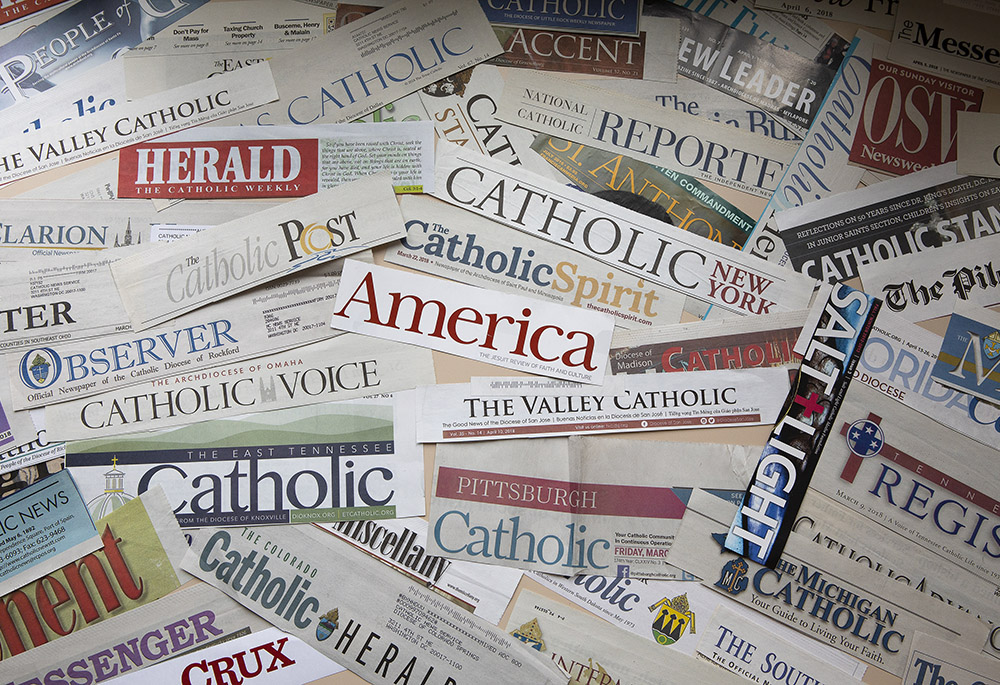
The mastheads of numerous Catholic newspapers are seen in this photo illustration. (CNS/Tyler Orsburn)
The impending demise of CNS is but the latest hierarchical assault on newsgathering and reporting. There are a host of Catholic editors and reporters, current and past, who could bear witness to the restraints that bishops — liberal, conservative and everything in between — placed on the reporting of the truth if it impeded their interests or affected their reputations.
One of the best examples of how fear worked with power to silence the mildest of ecclesial discussions was the "forced resignation" in 2005 of Jesuit Fr. Thomas Reese as editor of America magazine.
Properly termed, it was a firing demanded by Vatican operatives terrified and upset that the publication had broached, always with multiple points of view, issues such as homosexual priests, condoms and HIV/AIDS, thuggish treatment of theologians by John Paul II's administration, and denying Communion to Catholic politicians who did not vote as bishops wished on the matter of abortion.
Right. All of that, thanks to a Jesuit pope schooled in the messiness of the Catholic margins, has gone the way of the mandatum and "grandma's lace." America Media today goes at it almost without restraint, taking full advantage of this time in the "green." Surely editors there understand that a time of "dry" is inevitable, that a vow of obedience to the pope carries with it inherent limitations depending on who is sitting in the chair.
I hope that time of dry is in the distant future. The Catholic community is much healthier and better served when fear of reprisal isn't the silent, patrolling force at editorial meetings. But the threat of interference within the institution is ever present, as evidenced by what's happening at CNS. The power of the church to fire or silence or influence coverage always hangs over those whose existence is tied to the institution.
In the void created by the disappearance of CNS, lots of actors will be after audience, influence, and revenue. Be careful what you read. Be concerned if the outlet is endorsed by the people (bishops in particular) it is supposed to be covering.
Good journalism, in civil society as well as the church, holds power to account, not in a vindictive way, but fully aware that the "dirty stuff of history" is part of the essential story.

